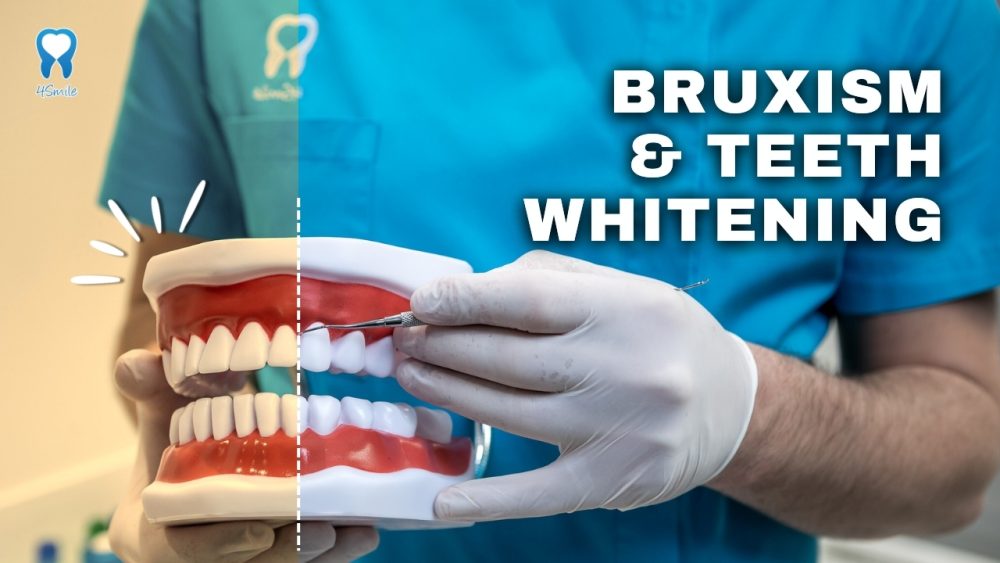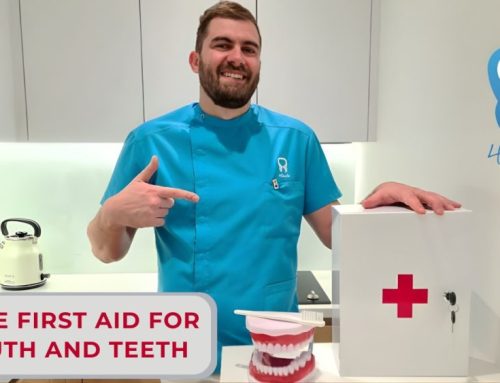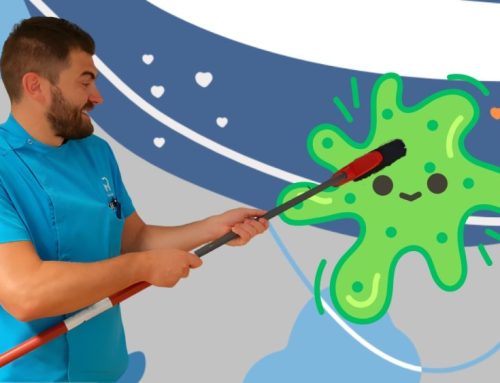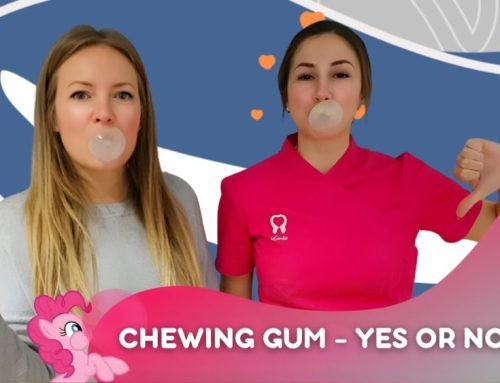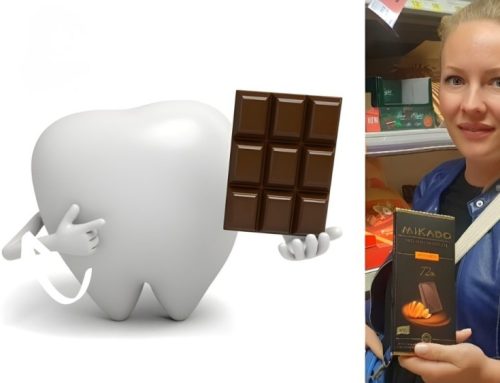Can people who suffer from bruxism whiten their teeth?
Bruxism, or the unconscious grinding of teeth, is a common occurrence among many people, most often happening during sleep. This habit can have numerous negative effects on dental health, including enamel wear, increased sensitivity, and even tooth fractures.
At Dental Center 4Smile, we often encounter the question of whether patients with bruxism can whiten their teeth and how bruxism affects this aesthetic treatment.
The impact of bruxism on teeth
Bruxism can significantly damage tooth enamel, leading to the wearing down of the tooth’s protective layer. Damaged enamel can cause increased tooth sensitivity to heat, cold, as well as sweet or sour foods. This sensitivity can be further heightened after whitening, as most whitening treatments use chemicals that affect the enamel. Therefore, it is important to assess the condition of the teeth before undergoing any whitening treatment.
Teeth whitening in people with bruxism
People who suffer from bruxism can whiten their teeth, but there are several factors to consider. First and foremost, the dentist must assess the degree of tooth damage. If the teeth are significantly damaged, whitening could further worsen the condition, causing even more sensitivity and discomfort.
For patients with mild to moderate forms of bruxism, whitening is possible, but with extra precautions. It is important to use whitening methods that are gentler on the teeth, such as treatments performed by a dentist in the office, as they are controlled and tailored to the condition of the teeth. Additionally, wearing a night guard for bruxism can help protect the teeth from further damage.
Recommendations for safe teeth whitening with bruxism
If you suffer from bruxism and are considering teeth whitening, here are a few recommendations to help make the process as safe as possible:
- Consultation with a dentist:
The first step is always to consult with a dentist to assess the condition of your teeth and the degree of enamel damage.
Although there are numerous home teeth whitening methods, we recommend that people with bruxism opt for professional whitening in a dental clinic. The dentist will use gentler products that are suited to your condition.
- Bruxism guard:
If you are not already using a guard, consider wearing one. It not only protects your teeth from further damage but can also reduce the pain and discomfort caused by teeth grinding.
- Regular check-ups:
After teeth whitening, it is important to regularly visit the dentist for check-ups. This ensures that your teeth remain healthy even after the aesthetic treatment.
Teeth whitening is possible for people who suffer from bruxism, but only with strict control and careful assessment by a dentist. At Dental Center 4Smile in Zagreb, Europe, we are dedicated to providing personalized care for all our patients, including those facing challenges like bruxism.
If you are considering teeth whitening, feel free to contact us so we can find the best solution for your smile together.
